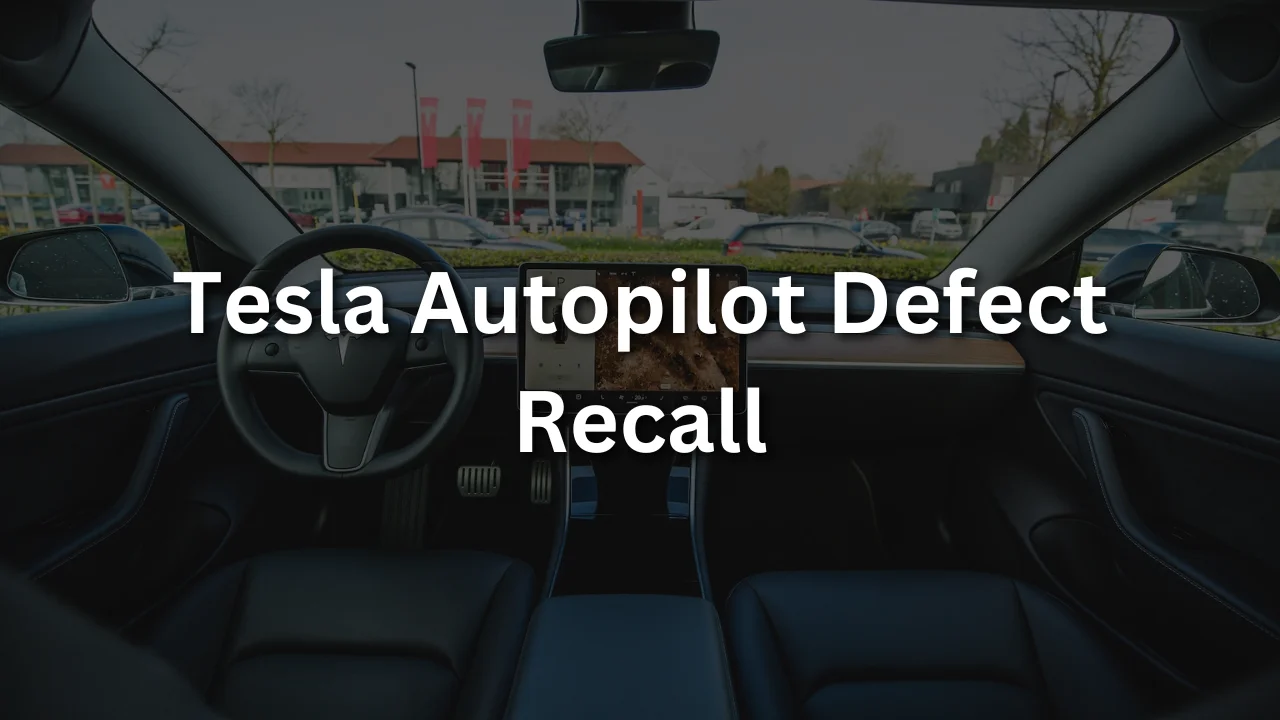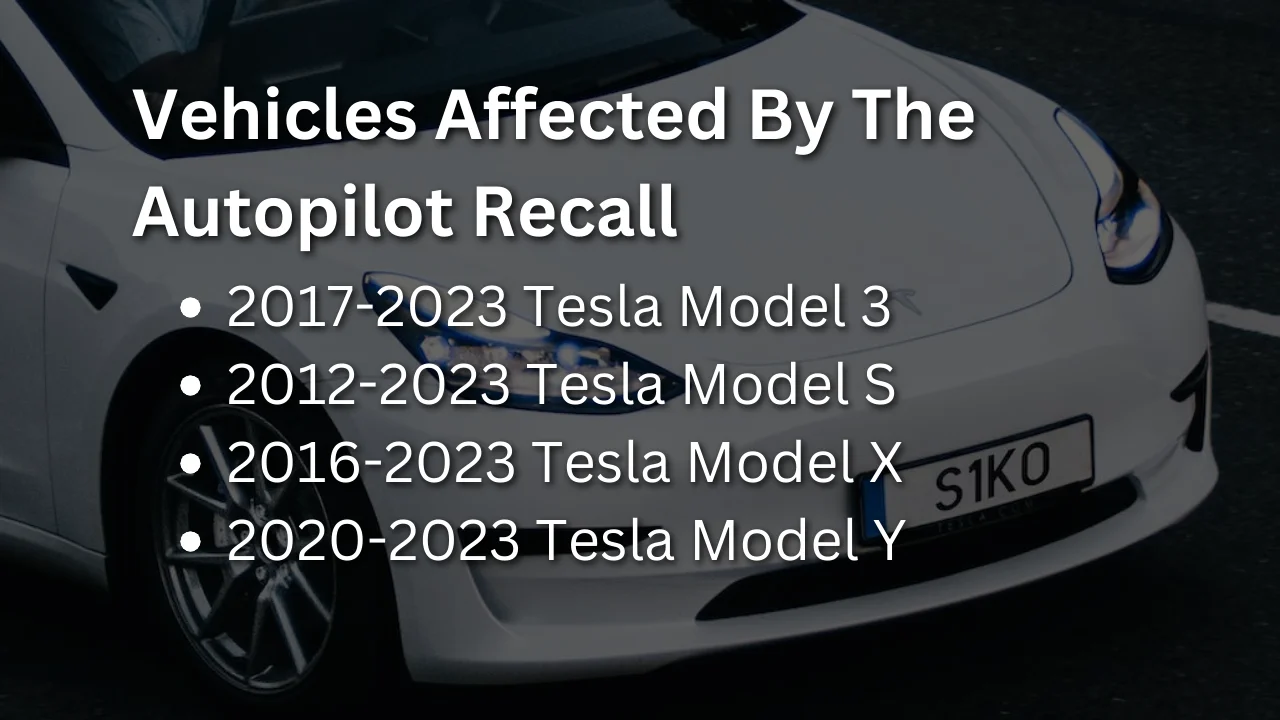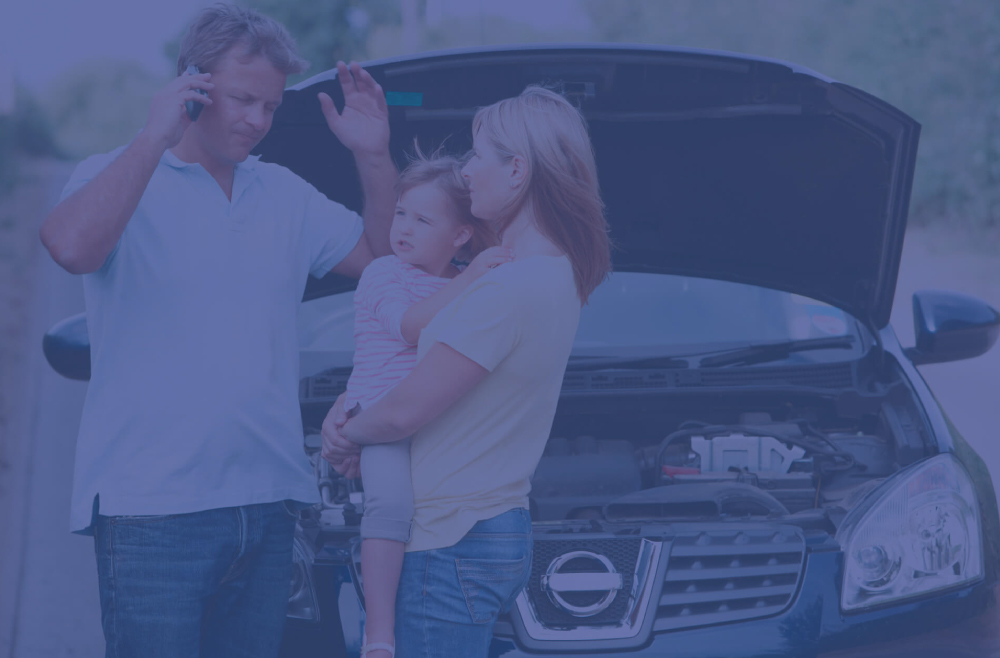Legally reviewed by: Chuck Panzarella, JD
Elon Musk’s Tesla has recently announced a recall of almost all of their vehicles ever made for issues involving the Basic Autopilot. The Basic Autopilot package includes the Autosteer and Traffic-Aware Cruise Control (TACC) that can help drivers with certain driving features such as steering, braking, and accelerating.
A 2 year-long investigation has found that Tesla vehicles with Autosteer equipped may not always work when the required circumstances are met. This means that when the Autosteer does not engage when the requirements are met, there is a greater chance for a collision. While Tesla did not concur with the National Highway Traffic Safety Association’s (NHTSA) analysis, it has decided to administer a recall and provide a software update as a remedy.

Our Tesla Lemon Law Lawyers Can Help You With Your Tesla Lemon.
Call us for a FREE Consultation!
What is the Tesla Autopilot Defect?
The Tesla Autopilot defect involves problems with the Autosteer and Traffic-Aware Cruise Control (TACC) that are part of the SAE Level 2 advanced driver-assistance features. In coordination with each other, the Autosteer and TACC provide steering, braking, and acceleration support for the driver under specific circumstances.
However, in certain circumstances when the Autosteer is engaged and the driver does not maintain safe vehicle operation and is not prepared to intervene in case the Autosteer is canceled or not engaged, there is an increased risk of a collision. This means that if the Tesla vehicle fails to properly notify the driver if the Autosteer is disengaged and the driver is not in a spot to respond to dangerous driving conditions in time, the driver has a higher chance of crashing.
What is Causing the Tesla Autopilot Issue?
Currently, there are no known causes for the Tesla Autopilot issue. This means that Tesla drivers will not know whether or not the Autosteer is working properly. Because of this, Tesla is deploying a software update that will address this issue at no cost to the owners.
Which Vehicles Are Affected by the Tesla Autopilot Recall?
The following Tesla vehicles are affected by the Autopilot recall:
- 2017-2023 Tesla Model 3
- 2012-2023 Tesla Model S
- 2016-2023 Tesla Model X
- 2020-2023 Tesla Model Y
If you own any of the Tesla vehicles listed above, look out for a software update (version 2023.44.30) that will be rolling out starting December 12, 2023, free of charge.

What is Tesla Doing to Address the Recall?
In response to NHTSA’s analysis of the Autosteer issue, Tesla is voluntarily sending out a free software update that Tesla owners will receive starting December 12, 2023. This update will address the Autosteer issue by adding additional controls and alerts to the already existing ones to make sure that the driver is engaged in safe driving.
Different models will get different additional alerts including:
- increased prominence of visual alerts on the user interface,
- simplified engagement and disengagement of Autosteer,
- additional checks upon engaging Autosteer and while using the feature outside controlled access highways and when approaching traffic controls, and
- eventual suspension from Autosteer use if the driver continuously fails to demonstrate safe driving while the feature is engaged.
Tesla Model S, Model X, Model 3, and Model Y are scheduled to receive the software update starting midday on December 7, 2023.
| Affected vehicles |
2012-2023 Model S and X, 2016-2023 Model 3, and 2020-2023 Model Y vehicles equipped with Autopilot
|
| Number of affected vehicles | Over 2 million |
| Reason for recall |
Autopilot system may improperly brake for certain road features or objects, increasing the risk of a collision
|
| Remedy |
Software update to be released over-the-air
|
| NHTSA investigation | Ongoing |
What To Do If Your Tesla is Having Problems
If you experienced any incident with your Tesla that is similar to this recall’s description, it would be ideal to rely less on the Autosteer feature until your vehicle has received the recall’s software update remedy. And because this recall’s remedy is provided over the air, you do not need to take your vehicle to a Tesla dealer to receive the software update.
If your Tesla is having problems not related to the Autopilot recall, you can take your vehicle to a Tesla dealer to have a qualified mechanic inspect your vehicle. They will be able to tell you if there is anything wrong with your Tesla or if there is an open recall for your Tesla model.
However, your Tesla may continue to experience defects even after Tesla has attempted to repair them. In this case, your Tesla may be considered a lemon car. This means that your vehicle was not manufactured to standard, and you may be entitled to compensation.
Contact Our Lemon Law Attorneys for Help
Driving a lemon car means that your vehicle is not up to the industry standard for safety. This is why it is important to get the vehicle’s defect fixed right away. However, if your car is a lemon, repairs might not get the defect fixed permanently, as the issue comes from the manufacturing process.
If your Tesla is a lemon, you may be entitled to compensation under the California Lemon Law. Our lemon law attorneys at Consumer Action Law Group have years of experience dealing with manufacturers on behalf of our clients and have gotten them compensation such as a refund, replacement vehicle, or cash settlement.
Contact the Consumer Action Law Group today and see if you have a lemon case that we can help with. We will evaluate your case for free and let you know if you have a case.












